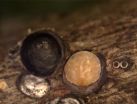(Press-News.org) They say knowledge is power, and a new UCLA study has shown this is definitely the case when it comes to men making the best decisions about how to treat their prostate cancer.
UCLA researchers found that men who aren't well educated about their disease have a much more difficult time making treatment decisions, called decisional conflict, a challenge that could negatively impact the quality of their care and their long-term outcomes.
The study should serve as a wake-up call for physicians, who can use the findings to target men less likely to know a lot about their prostate cancer and educate them prior to their appointments so they're more comfortable making treatment decisions, said study first author Dr. Alan Kaplan, a resident physician in the UCLA Department of Urology.
"For prostate cancer, there is no one right answer when it comes to treatment. It comes down to the right answer for each specific patient, and that is heavily dependent on their own personal preferences," Kaplan said. "Men in general, and specifically economically disadvantaged men, have a hard time deciding what their preferences are, how they feel about any possible complications and what the future after treatment might be like. If you don't know anything about your disease, you'll have a really tough time making a decision."
The findings from the one-year study appear in the early online edition of the peer-reviewed journal Cancer.
The research team surveyed 70 men at a Veterans Administration clinic who were newly diagnosed with localized prostate cancer and had enrolled in a randomized trial testing a novel shared decision-making tool. They collected baseline demographic and clinical such as age, race, education, co-existing medical conditions, relationship status, urinary and sexual dysfunction and their prostate cancer knowledge.
UCLA researchers talked one-on-one with the men after they had received their cancer diagnosis, but before they consulted with a physician. Median age of the men in the study was 63 years, 49% were African American and 70% reported an annual income of less than $30,000.
Kaplan said the team found that a low level of prostate cancer knowledge was associated with increased decisional conflict and higher uncertainty about what treatment to choose. Low levels of prostate cancer knowledge also were associated with lower perceived effectiveness – meaning the less they knew about their cancer, the less confidence they had that the treatment would be effective.
"Knowledge about prostate cancer is an identifiable target. Interventions designed to increase a patient's comprehension of prostate cancer and its treatments may greatly reduce decisional conflict," Kaplan said, adding that further study is needed to better characterize this relationship and identify effective targeted interventions.
"If you get shot in the gut, there aren't many options. You go into the operating room to get fixed up," he said. "With prostate cancer, there are lots of options and not all are right for everybody."
Men with prostate cancer might need to decide between surgery versus radiation or opting for active surveillance, in which patients are monitored closely for changes in the progression of their cancer and are tested at regular intervals. Prostate cancers can also be treated implantable radioactive seeds or tumors may be burned or frozen as treatment.
Another benefit to reducing decisional conflict is that patients who feel comfortable with their decision may regret their decisions less down the line, Kaplan said. They're less likely to sue their doctors and generally experience better outcomes.
"In a way, it's like buying a car. You prepare, you read reports, do your homework," Kaplan said. "If something goes wrong with the car, you feel OK because you knew what you were getting into. When patients take ownership of the decision-making process, their outcomes are better."
Kaplan said economically disadvantaged men may be having more difficulty because they may not have as much experience negotiating the healthcare system and are less confident when communicating with doctors.
"Doctors, we know intuitively, should spend more time with their patients, especially when they're making an important decision," he said. "But all of us are challenged with the numbers of patients we must see in a day. If you know beforehand that a patient has a poor knowledge about his cancer, that's someone you need to spend more time with."
Doctors may also want to provide these patients with educational information before their consultation so they can begin to increase their prostate cancer knowledge, Kaplan said.
Prostate cancer is the most frequently diagnosed cancer in men aside from skin cancer. An estimated 233,000 new cases of prostate cancer will occur in the United States in 2014. Of those, nearly 30,000 men will die.
INFORMATION:
The study was funded by UCLA's Jonsson Comprehensive Cancer Center and the National Institutes of Health (R01 CA134997, 5R25CA087949-14, 5R01CA134997-02).
For more than 50 years, the urology specialists at UCLA have continued to break new ground and set the standards of care for patients suffering from urological conditions. In collaboration with research scientists, UCLA's internationally renowned physicians are pioneering new, less invasive methods of delivering care that are more effective and less costly. UCLA's is one of only a handful of urology programs in the country that offer kidney and pancreas transplantation. In July of 2013, UCLA Urology was once again ranked fourth in the nation by U.S. News & World Report, a ranking it has held for the last 15 years. For more information, visit http://urology.ucla.edu/.
Men who are uneducated about their prostate cancer have difficulty making good treatment choices
2014-08-27
ELSE PRESS RELEASES FROM THIS DATE:
In sync and in control?
2014-08-27
In the aftermath of the Aug. 9 shooting of an 18-year-old African American man by a white police officer in Ferguson, Missouri, much of the nation's attention has been focused on how law enforcement's use of military gear might have inflamed tensions.
But what if the simple act of marching in unison — as riot police routinely do — increases the likelihood that law enforcement will use excessive force in policing protests?
That's the suggestion of a new study by a pair of UCLA social scientists.
"We have found that when men are walking in step with other men, they ...
Study identifies upside to financial innovations
2014-08-27
Financial innovations can make or break an economy. While the negative impact of financial innovation has been extensively covered, a new study of financial innovations before and during the last financial crisis indicates that financial innovations are not all bad. Many provide positive returns, especially in the United States. However, those that are easy for consumers to understand provide the best returns for investors.
The study by Gerard J. Tellis, professor, director of the Center for Global Innovation and Neely Professor of American Enterprise at USC Marshall ...
Soda tax for adolescents and exercise for children best strategies for reducing obesity
2014-08-27
Ann Arbor, MI, August 27, 2014 — Childhood obesity in the United States remains high. A tax on sugar-sweetened beverages such as sodas, energy drinks, sweet teas, and sports drinks would reduce obesity in adolescents more than other policies, such as exercise or an advertising ban, and would also generate significant revenue for additional obesity prevention activities, say researchers writing in the American Journal of Preventive Medicine. The study also demonstrated that physical activity would benefit children ages 6-12 most.
Nearly one in three young people between ...
Happy Camp and July Fire Complexes in California
2014-08-27
As of seven hours ago the Happy Camp Complex of fires had consumed 24,939 acres of land in Northern California, the July complex had consumed 35,530 as of eight hours ago.
Lightning strikes started seventeen fires on the Happy Camp Ranger District of the Klamath National Forest when a thunderstorm passed through the area on August 11, 2014. All but three of those fires are now 100 percent contained. The following is a list of contained fires and their size at containment: Delta, 150 acres; Sutcliffe, 27 acres; Jackson, 21 acres;Thompson, 17 acres; Tims, 13 acres; Ranch, ...
Researchers discover why Listeria bacterium is so hard to fight
2014-08-27
Listeria is a dreaded bacterium that can be found in both unprocessed and processed foods. Over the last few weeks, 28 persons in Denmark have been infected with Listeria from processed food, sold in supermarkets. 13 have died.
The bacterium is notoriously difficult to fight because it has an almost uncanny ability to adapt to changes in its surroundings, says Associate Professor Birgitte Kallipolitis, University of Southern Denmark. Together with colleagues from the Department of Biochemistry and Molecular Biology, she has published a study, which in details reveals ...
Museum specimens, modern cities show how an insect pest will respond to climate change
2014-08-27
Researchers from North Carolina State University have found that century-old museum specimens hold clues to how global climate change will affect a common insect pest that can weaken and kill trees – and the news is not good.
"Recent studies found that scale insect populations increase on oak and maple trees in warmer urban areas, which raises the possibility that these pests may also increase with global warming," says Dr. Elsa Youngsteadt, a research associate at NC State and lead author of a paper on the work.
"More scale insects would be a problem, since scales ...
What lit up the universe?
2014-08-27
New research from UCL shows we will soon uncover the origin of the ultraviolet light that bathes the cosmos, helping scientists understand how galaxies were built.
The study published today in The Astrophysical Journal Letters by UCL cosmologists Dr Andrew Pontzen and Dr Hiranya Peiris (both UCL Physics & Astronomy), together with collaborators at Princeton and Barcelona Universities, shows how forthcoming astronomical surveys will reveal what lit up the cosmos.
"Which produces more light? A country's biggest cities or its many tiny towns?" asked Dr Pontzen, lead author ...
Sheepdogs use simple rules to herd sheep
2014-08-27
Sheepdogs use just two simple rules to round up large herds of sheep, scientists have discovered.
The findings could lead to the development of robots that can gather and herd livestock, crowd control techniques, or new methods to clean up the environment.
For the first time scientists used GPS technology to understand how sheepdogs do their jobs so well. Until now, they had no idea how the dogs manage to get so many unwilling sheep to move in the same direction.
NERC fellow, Dr Andrew King of Swansea University, fitted a flock of sheep and a sheepdog with backpacks ...
Everest expedition provides first evidence of effects of altitude on blood pressure
2014-08-27
An expedition to Mount Everest by Italian researchers has shown for the first time that blood pressure monitored over a 24-hour period rises progressively as people climb to higher altitudes. The researchers also found that while a drug used for lowering blood pressure, called telmisartan, was effective in counteracting the effects of altitude up to 3400 metres, it was not effective at 5400 metres above sea level – the height of the Everest base camp.
The study is published online today (Wednesday) in the European Heart Journal [1], and its findings have implications ...
Animals first flex their muscles
2014-08-27
An unusual new fossil discovery of one of the earliest animals on earth may also provide the oldest evidence of muscle tissue – the bundles of cells that make movement in animals possible.
The fossil, dating from 560 million years ago, was discovered in Newfoundland, Canada. On the basis of its four-fold symmetry, morphological characteristics, and what appear to be some of the earliest impressions of muscular tissue, researchers from the University of Cambridge, in collaboration with the University of Oxford and the Memorial University of Newfoundland, have interpreted ...





